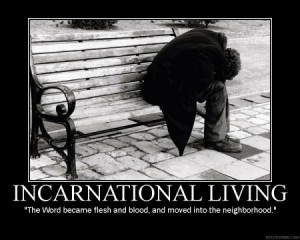 Recenly, I knocked out Dallas Willard’s Hearing God and The Practice of the Presence of God by Brother Lawrence. Both books deal with communicating with God, and have a lot of insight on the barriers and benefits to it.
Recenly, I knocked out Dallas Willard’s Hearing God and The Practice of the Presence of God by Brother Lawrence. Both books deal with communicating with God, and have a lot of insight on the barriers and benefits to it.
Willard suggests that rather than asking the question, “Why doesn’t God talk to me?” we should ask the question “Why should God talk to me?” As he always does, Willard breaks these mystical concepts into clear relational processes. We never ask the question, why would a stranger, who I have no interaction with talk to me? Rather, we will here from God, as we do life with him in the kingdom.
Although I have some struggles with the image of piety that Brother Lawrence projects, he offers an excellent example of how to do life with God. He spent much of his life in a kitchen. He would start his time there with prayer, asking God to be with him as he made omelets. Afterward, he would review his day, what went well, what did not, and share that with God.
Maybe God just wants to be treated like everyone else who is a major part of your life.



 Finding Our Way Again isn’t Brian McLaren’s best or most important read, but I find myself chewing on what he brought up.
Finding Our Way Again isn’t Brian McLaren’s best or most important read, but I find myself chewing on what he brought up.





 Tweets
Tweets